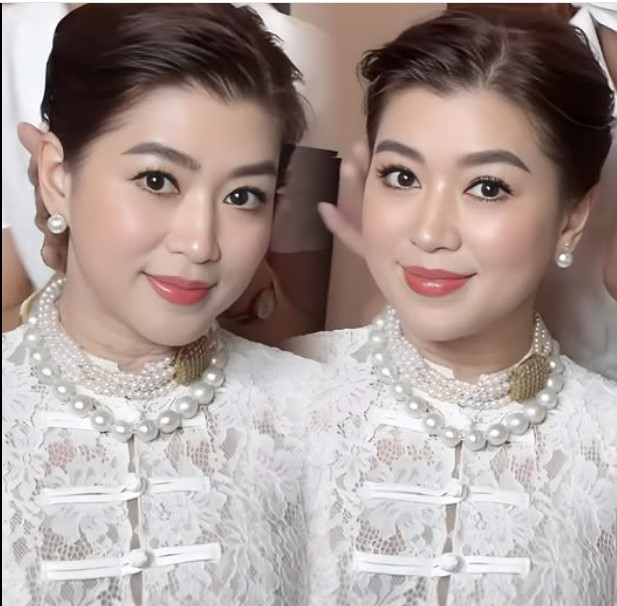








H2: The Modern Sleeper’s Dilemma
Let’s face it—sleep isn’t what it used to be. With notifications buzzing, stress levels rising, and late-night scrolling becoming a habit, quality rest has become a luxury. But what if you could reclaim your nights using just a little bit of smart tech? That’s where AI-powered sleep trackers come in.
H2: So, What Exactly Is an AI Sleep Tracker?
Imagine having a personal sleep coach—one that doesn’t talk back, doesn’t need a paycheck, and watches over your sleep like a digital guardian angel. That’s an AI-powered sleep tracker. These aren’t your average fitness bands. They analyze patterns, adapt to your body, and give data-backed insights to help you sleep better.
Think of it like a sleep detective. It picks up clues—heart rate, breathing, movement, even snoring—and pieces them together to understand your nightly rhythms.
H2: How AI Makes the Difference (It’s Not Just Sensors)
You might wonder, “Aren’t all sleep trackers the same?” Nope. Here’s the twist: Artificial Intelligence gives these gadgets a serious edge. Unlike basic trackers that just collect data, AI interprets it. It learns your sleep style over time and provides personalized advice, not just generic sleep stats.
It’s like the difference between a weather app that tells you it’s raining and one that says, “Hey, bring an umbrella because it always rains when your barometric pressure drops like this.”
H2: Key Features That Are Changing the Sleep Game
H3: 1. Smart Sleep Staging
AI tracks your transitions between light, deep, and REM sleep. Over time, it understands how much of each you need and alerts you if something’s off.
H3: 2. Adaptive Alarm Systems
Instead of waking you mid-snore, AI-powered trackers use your sleep cycle to gently wake you at the optimal moment, making mornings less brutal.
H3: 3. Real-Time Stress + Environment Monitoring
Advanced models sync with room temperature, air quality, and even your stress levels. Why? Because your sleep doesn’t happen in a vacuum. AI puts it all into context.
H2: Benefits That Go Way Beyond Tracking
H3: Say Goodbye to Guesswork
No more wondering why you feel exhausted after 8 hours in bed. These trackers will tell you if you spent half the night tossing in light sleep instead of reaching that sweet deep-sleep zone.
H3: Long-Term Sleep Coaching
AI doesn’t just analyze—it adapts. The more you use it, the smarter it gets. Over time, it learns what habits mess with your rest—late-night snacks, blue light exposure, irregular sleep times—and gives you tailored tips.
H3: Improved Mental and Physical Health
Better sleep equals better life. When AI helps you optimize your rest, the ripple effect touches your mood, focus, heart health, and immunity. Basically, sleep well, live well.
H2: Top AI-Powered Sleep Trackers Worth Trying
H3: Oura Ring
This discreet smart ring is the king of sleep insights. Backed by serious science, the Oura Ring uses AI to monitor everything from temperature fluctuations to heart rate variability, offering a detailed readiness score every morning.
H3: Whoop Strap
Originally popular among athletes, Whoop’s AI doesn’t just track—it coaches. It tells you when to sleep, when to push yourself, and when to recover.
H3: Fitbit Sense 2
Fitbit’s newest models come equipped with advanced AI analytics and stress detection, offering more than just sleep stats—they give you a holistic health snapshot.
H2: Who Should Be Using These?
In short? Everyone who sleeps. But especially:
-
People with sleep disorders like insomnia or apnea
-
Busy professionals who want better recovery
-
Fitness junkies tracking recovery time
-
Parents juggling chaos and REM cycles
-
Students running on caffeine and 3 hours of shut-eye
If you’ve ever thought, “I think I sleep enough, but why am I always tired?”—then it’s time for AI to step in.
H2: The Downside (Because Nothing’s Perfect)
Let’s be real—no tech is flawless.
-
Accuracy can vary between devices
-
Privacy concerns with biometric data collection
-
Price tags on premium devices can make you wince
-
Over-tracking might lead to sleep anxiety (yup, it’s a thing)
But the pros? They often far outweigh the cons—especially when used mindfully.
H2: What’s Next for AI in Sleep?
Soon, AI won’t just track your sleep—it will intervene. We’re talking about smart beds that adjust firmness in real-time, headbands that stimulate your brain to promote deep sleep, and apps that interact with your smart home to dim lights, lower the thermostat, or cue white noise—all personalized through AI.
We’re heading toward a world where your bed won’t just be for sleep—it’ll be your personal wellness hub.
H2: Final Thoughts – Let AI Tuck You In
Sleep is sacred—but in today’s fast-paced world, it often gets sidelined. With AI-powered sleep trackers, rest can finally take center stage. These tiny devices help you understand your sleep patterns, adjust your habits, and wake up feeling like an actual human again (not a zombie).
If your body had a “reset” button, a smart sleep tracker is the closest thing to it.
So, if you’re tired of being tired, maybe it’s time to let a little artificial intelligence help you sleep like a baby.
